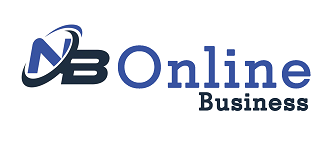The ever-evolving nature of the healthcare industry demands professionals to be continually aware and prepared to manage potential risks. The importance of risk management in healthcare has grown in recent years due to new technologies, increased regulations, and the growing potential for cyber threats. In the below article, we will discuss the importance of risk management in healthcare and how to effectively mitigate risks.
What is Risk Management in Healthcare?
Risk management in healthcare refers to the systematic process of identifying, assessing, and mitigating potential threats and vulnerabilities that may negatively affect patient care, data security, and the overall performance of a healthcare organization. These risks can arise from human errors, technological issues, natural disasters, and cyberattacks, among other factors. A comprehensive risk management plan in healthcare aims to enhance patient safety, maintain compliance with regulations, and ensure the continuity of care in case of emergencies.
Key Components of a Successful Risk Management Plan
- Risk Identification: Proactively identifying potential risks and vulnerabilities by conducting assessments and monitoring the healthcare environment.
- Risk Analysis: Prioritizing identified risks according to their severity, likelihood, and potential impact on patient care and organizational performance.
- Risk Treatment: Developing and implementing strategies to eliminate or mitigate the identified risks, as well as monitoring and adjusting these strategies as needed.
- Risk Monitoring: Continuously tracking, evaluating, and updating risk management plans to ensure ongoing effectiveness in the face of new threats or changing regulations.
The Role of Risk Management Software in Healthcare
In today’s dynamic and complex healthcare landscape, utilizing effective risk management software for healthcare has become an essential component of a robust risk management plan. These tools offer advanced features and functionalities that help healthcare organizations streamline their risk management processes, save time, and enhance overall efficiency.
Some of the key advantages of using risk management software in healthcare are:
- Centralized Information: Efficient data storage, organization, and retrieval, allowing healthcare organizations to easily access and analyze key risk-related data.
- Automated Risk Assessments: Identifying potential risks and vulnerabilities through automated assessments, ensuring that no potential hazards are overlooked.
- Enhanced Compliance: Offering customizable solutions that align with changing regulations, allowing healthcare organizations to maintain compliance more effectively.
- Improved Decision Making: Providing valuable insights and analytics that enable healthcare providers to make informed decisions regarding risk management and patient safety.
To Sum Up
Risk management in healthcare is vital to ensuring patient safety, maintaining compliance, and supporting the long-term success of healthcare organizations. For the best results, consider engaging professional services to assist in developing a comprehensive and adaptive risk management plan tailored to the unique needs of your organization. By taking these steps and knowing about the main stages of risk management, organizations can build effective strategies to mitigate and control potential risks more effectively. This way healthcare organizations can ensure a secure and successful future for their organization.

